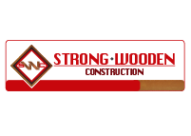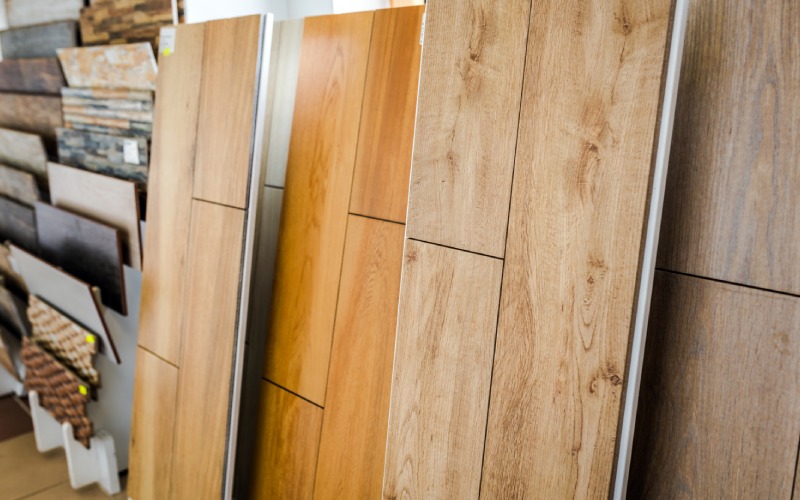Floor installation is an expensive, time-consuming project, and you don’t want to have to replace it every few years. You might need especially durable flooring because you have kids or pets. But even if you live alone, you don’t want to have to deal with frequent scratches and dings on your floors from everyday life.
Here are eight of the most durable flooring options to suit your lifestyle.
Tile Flooring
Tile has no equal when it comes to durability. Porcelain and ceramic are some of the longest lasting flooring materials available, and they require little maintenance.
Tile flooring is also moisture resistant, making it the perfect choice for areas where spills are common like bathrooms, kitchens, and laundry rooms. Glazed tiles have a sealed surface that is also resistant to scratches and allergens, which is a big plus for pet owners. In addition to being extremely practical, tile is customizable with a wide range of sizes, colors, textures,designs, styles to fit any room, and several durable tile options to choose from.
A few notable downsides to tile flooring are that it doesn’t retain heat, it’s expensive to install, and fragile objects like plates and glasses will shatter if dropped. If tile isn’t installed properly, the grout will fail, and the tiles will fall out over time. Make sure you always consult with a professional flooring installer before you dive into a home improvement project involving grout for tile.
Luxury Vinyl Tile (LVT)
Luxury vinyle tile (LVT) is an affordable plastic alternative to traditional tile flooring. LVT planks and tiles are incredibly realistic, and you can customize them to achieve the same elegant appearance of ceramic tile or the natural look of hardwood at a much lower price.
Like all other products, there are some advantages/disadvantages of luxury vinyl. In this post, we will cover the highlights:
A major advantage of luxury vinyl tile is that it is much softer and more flexible than traditional flooring materials. Vinyl’s elasticity and cushioning amplifies its durability and helps it resist rips and tears. Its more absorptive nature also helps reduce noise which makes it a great choice for laundry rooms and playrooms. Vinyl is also extremely waterproof.
The disadvantages of luxury vinyl tile are that it can’t be repaired easily, it’s difficult to remove, and it has a shorter lifespan than traditional floor types.
Hardwood Flooring
Hardwood is a durable, long lasting, and hypoallergenic flooring material that is ideal if you’re looking to outfit your home with a more natural look. Whether it’s a high traffic hallway or an elegant dining room, wood flooring provides a unique combination of nature and sophistication that no other floor covering can pull off. Hardwood is also softer and warmer underfoot than tile.
Quality hardwood flooring is one of the most sought-after amenities, so it adds a considerable amount of value to your home. Although it requires a bit of care, there are many sealants and finishes that can extend the life of a wood floor. Hardwood is also easily repaired by sanding and refinishing imperfections that arise over time.
One drawback to hardwood flooring is that it isn’t water resistant. If you want to install hardwood flooring in an area like your kitchen or mudroom, make sure you clean up spills as soon as possible. Hardwood is also highly susceptible to scratches, so it might also not be the best choice for pet owners.
Laminate
Laminate is a durable, cost-effective alternative to traditional hardwood flooring made of compressed fiberboard with a laminated design layer on top. Consider laminate if you want to achieve a natural hardwood look on a budget. Think of it this way: laminate is to hardwood as luxury vinyl is to tile.
Laminate has many unique benefits: it’s inexpensive, easy to clean, and the laminated top layer makes it scratch resistant. This makes it a fantastic flooring choice for parents and pet owners. Laminate is also more comfortable to walk on than tile or vinyl since it’s warmer and thicker.
One of laminate’s weaknesses is that it isn’t waterproof. Because it’s a wood product, laminate flooring will soften and swell if water seeps through. Another weakness is that it isn’t easy to repair. If you buy laminate flooring that snaps together, you may be able to replace the individual boards, but the new pieces might not match perfectly depending on your floor’s age and fading.

